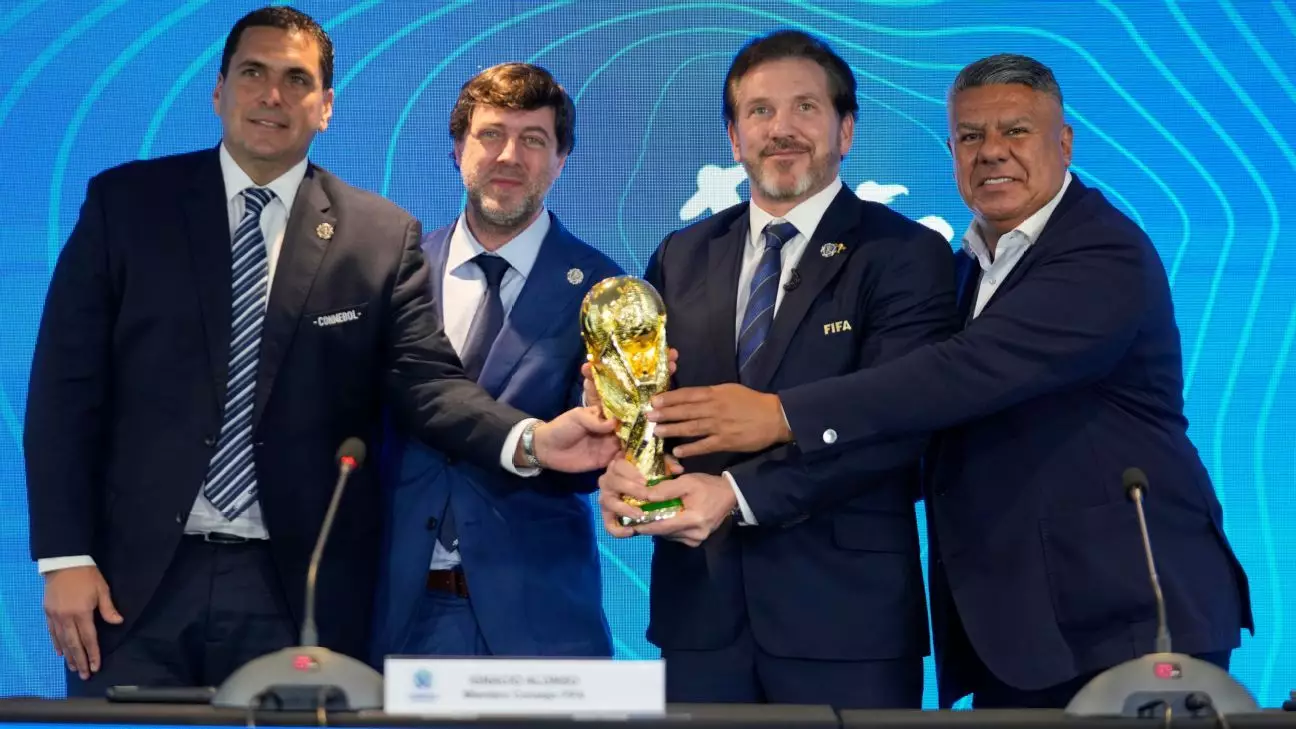[popup_video id=”d4f6e40b-ab02-4515-afeb-606daf0c1295″]
The recent suggestion to expand the men’s 2030 FIFA World Cup from 48 to an unprecedented 64 teams has stirred considerable debate within the soccer community. UEFA president Aleksander Čeferin, who also holds a vice presidential post at FIFA, vigorously denounced the idea during a press conference in Belgrade. He articulated an essential concern that resonates with many: the fear that such an expansion might dilute the quality of the sport. With the World Cup already being an extraordinary showcase of global talent, adding 16 teams could potentially lead to less competitive matches and undermine the tournament’s prestigious reputation.
Critics assert that this shift towards a larger tournament format would yield a staggering 128 games, raising questions about the integrity of the matches themselves. The prospect of weaker teams participating could result in predictable outcomes, bringing down the excitement and unpredictability that define the World Cup experience. As Čeferin pointed out, the implications would stretch beyond just the Cup itself, casting shadows on the qualifying tournaments across continents.
Financial Motives and Development Goals
Despite concerns over quality, FIFA president Gianni Infantino appears to champion the expansion, possibly motivated by the financial windfalls that come with a larger tournament. Revenue generation often lies at the heart of such proposals, with the assumption that more teams mean more games and, consequently, more ticket sales and sponsorship opportunities. However, the essence of the game should not solely be measured in monetary terms. If soccer loses the very fabric of competitive integrity in pursuit of profit, stakeholders may find themselves at a crossroads where the sport becomes less about talent and more about money-making ventures.
The argument for development is also frequently cited. Proponents believe that increasing participation opportunities for nations could foster growth in soccer globally. However, it raises an inevitable counterpoint: Does adding more teams create genuine development, or merely invite a larger pool of mediocre talent? The essence of a tournament like the World Cup is to elevate the game, showcasing elite competition rather than accommodating all participants regardless of their capability.
The Complexity of the Host Selection
The origins of the 64-team proposal are particularly puzzling, as Čeferin pointedly questioned its emergence during the FIFA council. This uncertainty about its genesis casts a shadow over the decision-making processes within FIFA. It’s critical to understand that the upcoming World Cup is already marked by its complexity, being co-hosted by three nations—Canada, the United States, and Mexico—along with the special arrangements made for South American nations in celebrating the tournament’s centenary.
The suspicion that the idea might not be well-considered raises alarms regarding the governance of FIFA. While conversations about World Cup expansion can provide exciting narratives, the implications of poorly thought-out decisions could have a lasting detrimental impact on soccer’s global stature. For a tournament that symbolizes unity and excellence in the sport, such a contentious proposal risks fragmenting the ideals it stands for.
In light of these developments, the soccer community must deliberate carefully. The voices of leaders like Čeferin bring invaluable insight to the table, suggesting that sometimes restraint is necessary for maintaining the sport’s integrity. As we face critical decisions about the future of soccer, it is essential to prioritize both the quality of the game and the experiences of teams and fans alike, firmly rooting our ambitions in the very essence of what makes soccer a beloved global spectacle.

